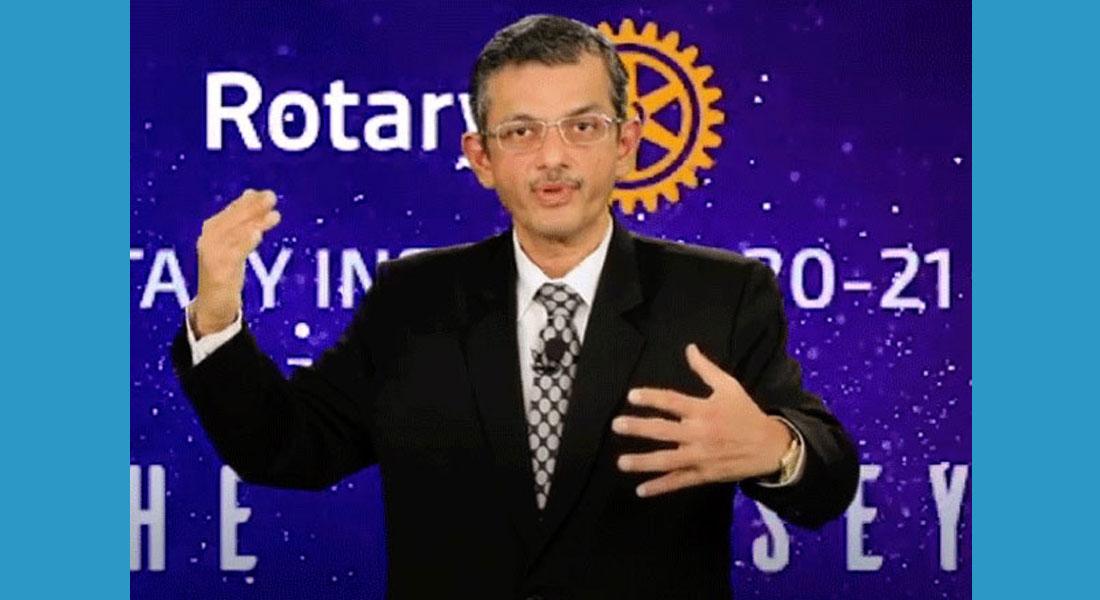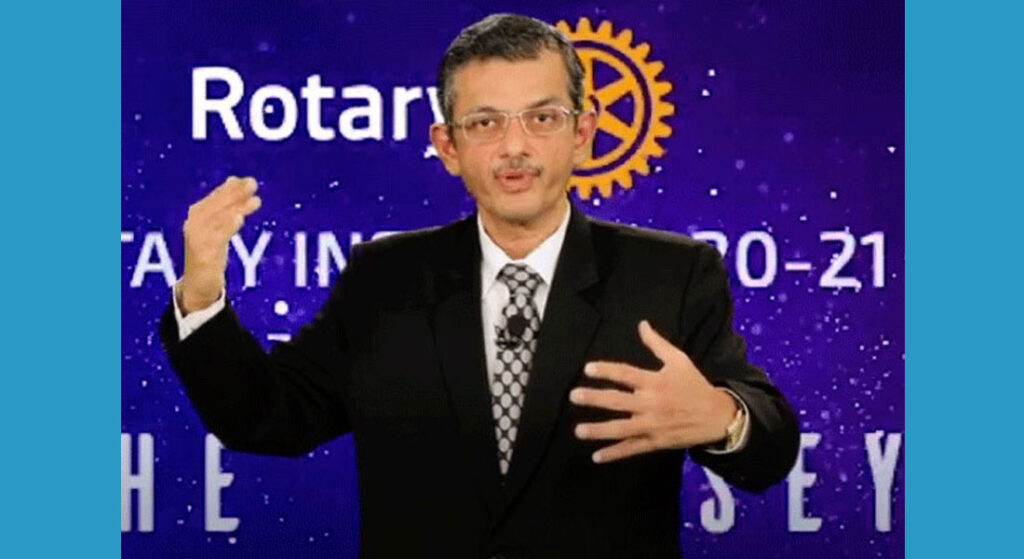
Over the last one-and-half years, Rotary clubs have done remarkable work in holding Know Your Numbers camps across the country. “Please continue the camps which can be held even in pandemic times as we are checking around 150–200 patients in a camp, hence Covid precautions and social distancing can be observed without difficulty,” said RI director Dr Bharat Pandya, in a session on Project Positive Health (PPH) at the virtual Rotary institute.
Every person must know his or her numbers — height, weight (both give BMI that indicate obesity), blood pressure (that points to hypertension and heart problems) and blood sugar for diabetes. “Obesity, hypertension and diabetes together account for the big NCDs, causing 60 per cent of deaths in India as Indians are culturally and genetically predisposed to these chronic, lifestyle diseases,” he said.
He warned that in India the NCDs occur 15–20 years earlier than in western countries. For eg, what usually occurs at the age of 60–75 in the west, occurs at 45–50 in India. “The burden of chronic kidney diseases is the highest in India which is also the diabetic capital of the world.” During the pandemic, the death rate of people with comorbidities is much higher than that of the general population, he added.
One of the positives of the pandemic is the focus it has brought on the importance of good health and secondly, people with comorbidities, those with NCDs, are affected more severely, some of them getting admitted in hospitals and ICUs, he noted.
Ready-to-explode volcano
The NCDs is a volcano waiting to explode, he said and after a pause, added “let me correct myself. It has already started exploding and if we don’t do something about it quickly, then it is a big problem we are leaving for future generations.” Dwelling on the causes of NCDs, he said improper lifestyle with too much stress; no physical activity like exercise; and bad food and bad habits are three main reasons for the huge spike in patients with chronic diseases.
Indian food is rich in cholesterol, calories, salt, oil and sugar. Bad habits like tobacco and alcohol consumption are on the rise. “People are not aware of the importance of regular check-up and need for lifestyle modifications,” Pandya added.
Rotary PPH has a three-pronged approach to tackle NCDs in India — holding Know Your Numbers camps and popularising the slogan Ek chamach kam, char kadam aage through Rotary camps and events. Simply put, the tagline urges you to take one spoon less of salt, oil and sugar in your daily diet and do at least 30 minutes of exercise daily to ward off NCDs. “Adopt this slogan in your life and also make your friends, families and business associates to adopt and implement it in their lives.”
Through awareness programmes in schools Rotary is trying to change the mindset of children on the importance of good habits, healthy food and the need to exercise. “They will go back and change the mindset of their parents, elders and relatives.”
Preventive healthcare
As a surgeon, he added, “I am always committed to curative healthcare, but I realise that the future of healthcare lies in preventive care,” Pandya said. PPH is not just a 2–3 years programme, but it should be carried on for at least 15–20 years and beyond. Citing a popular Hindi saying for good health, he said, “keep your tummy soft (diet control), feet warm (regular exercise), and mind cool. If you do the three things, you can overcome and defeat NCD illnesses,” he added.






